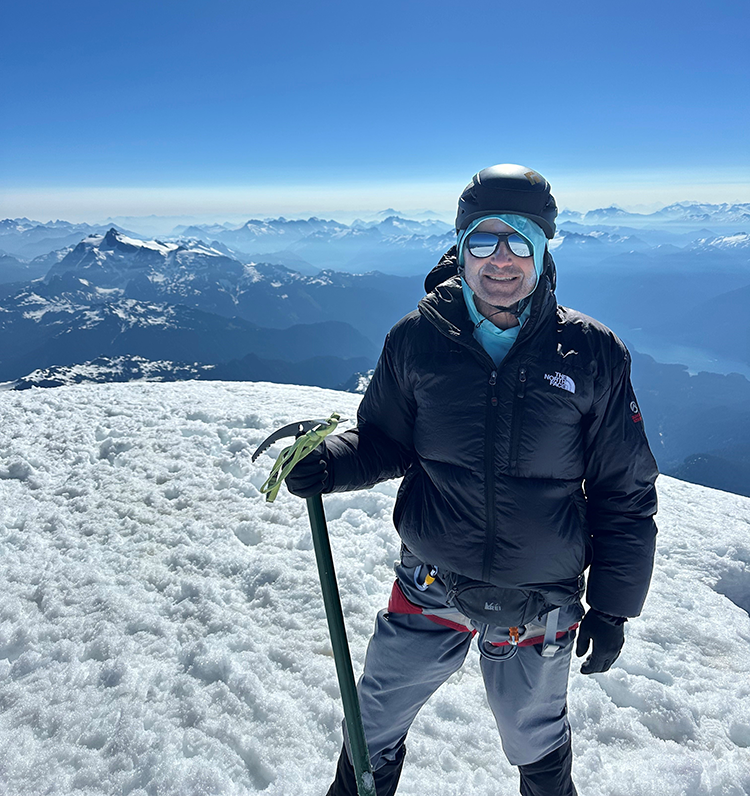Compound Interests
It might be safe to assume that subjects like jurisprudence, securities law and the finer points of drawing up a contract would be on the topic list when associates and law students meet for on-campus clerkship interviews.
But Michael G. Hatch would rather talk banjos.
“I don’t like to be too formal, because I like the person’s personality to come out,” says the third-year lawyer from Seattle. “I had a very long conversation with a woman about the banjo—she played it, and she was very interesting.”
Hatch is a member of his law firm’s hiring committee, and he usually interviews law students at his alma mater, the University of Washington School of Law.
When qualifications aren’t at issue, he feels that his goal is to find candidates who can liven things up at the office. And one of the best ways to do this is by discussing a candidate’s hobbies and talents. Limiting the law talk, he says, fosters better communication and puts candidates at ease in what can be a very stressful situation.
He’s not alone. With an average of 20 minutes allotted to each student interview, many associates who regularly participate in the process say there’s simply not enough time to get an insight into the candidate’s personality. Discussing the candidate’s interests outside the law gives the interviewer a better sense of who the candidate is, beyond what that person has learned in school.
Justin S. Antonipillai, a Washington, D.C., litigation associate, says discussing a candidate’s interests also helps him better understand the candidate’s personality, even if they don’t have a lot in common. “I try to look for people who are not just like me,” he says. “I try to just look for people who are the best.”
This also allows him to base his recommendations on something more tangible than whether he and the student clicked during the interview.
Yet some career services directors frown on this practice, believing it has the opposite effect.
“Students have no idea what the firm is doing to evaluate them during the interview,” says Kelly J. Voight, the private-sector career services director at Yale Law School. “It actually makes the students nervous.”
Another problem with an interest-focused interview is it leaves the students wanting to know more about the firm and the position, says Diane Downs, co-director of career planning and placement at the University of Pennsylvania Law School.
“During the interview, the students are pleased because it doesn’t feel stressful, but afterward they have no information, and it leaves the students a little confused,” she says.
Regardless, Voight says law students have gotten wise to the interest-based line of questioning and, as a result, many include a hobby section on their resumés.
“We don’t encourage this,” she says, “but interviewers do latch on to those interests.”
FINDING A BALANCE
Some law firms, recognizing the time limits of on-campus interviewing, have developed plans that try to accomplish both goals—getting at a person’s personality while retaining a focus on substantive law.
Kevin A. Burke, a senior associate in New York City, works at such a firm. Before heading to law schools, interviewers are given sample questions designed to investigate issues like work habits, creativity and how the candidate would fit in at the firm.
For instance, Burke says, he might ask the candidate what sort of work or academic challenges he or she faced in the past year. He also might inquire how the person dealt with the challenge of working with other people.
“I don’t grill people; I try to elicit examples and run with those different examples,” he says. “Or I give them an opportunity to describe things that are important to them. That tells me a bit about who I’m interviewing.”
Write a letter to the editor, share a story tip or update, or report an error.


